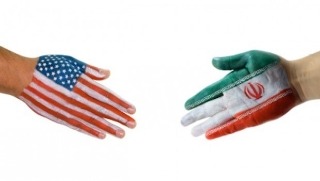U.S.-Iranian Rapprochement: Implications for Azerbaijan
By Farhad Aliyev (the 22/01/2014 issue of the CACI Analyst)
The Geneva interim agreement in November, 2013, between six world powers and Iran on its disputed nuclear program could mark the start of one of the most significant transformations in the Middle East over the last decades, with ramifications across Eurasia. Azerbaijan, as one of Iran's neighbors and sharing certain religious, ethnic, and cultural commonalities with Iran, should be considered among the countries most influenced by the success of negotiations with Iran, even in terms of Azerbaijan's domestic development.

Georgia's National Currency Continues to Depreciate
By Eka Janashia (the 22/01/2014 issue of the CACI Analyst)
2013 saw a significant depreciation of the Georgian national currency Lari (GEL) compared to both the US$ and the Euro. From the beginning of last year until now, the Lari's exchange rate has dropped against the U.S. and EU currency by over 5 and 7 percent respectively. Georgia's Minister of Finance, Nodar Khaduri, Minister of Economy and Sustainable Development, Giorgi Kvirikashvili, and the President of the National Bank of Georgia (NBG), Giorgi Kadagidze, insist that there is no reason for panic. However, the steady and speedy depreciation of the Lari has already triggered undesirable expectations among consumers and the business sector.
“CACI Analyst, January 08, 2014”
Opposition under Fire in Georgia
By Archil Zhorzholiani (the 08/01/2014 issue of the CACI Analyst)
The post-election period in Georgia, and especially December 2013, has been marked with a new wave of prosecutions against the main opposition party United National Movement (UNM).


